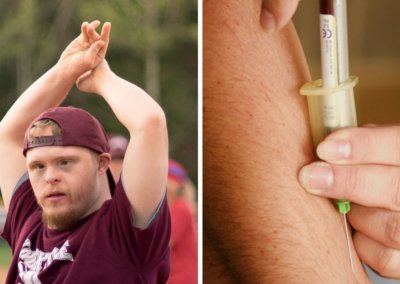Pregnant mothers could be rushed having into abortions under new proposals from the UK’s health watchdog to NHS organisations.
The guidance makes a series of recommendations which will reduce support for women, threaten the conscience protections of health professionals, and introduce the reality of abortion further into the home away from the care and support of healthcare professionals.
The radical recommendations have been produced by The National Institute for Health and Care Excellence (NICE), the official NHS advisory board, in its first abortion guidance and the Royal College of Obstetricians and Gynaecologists (RCOG).
Pro-life campaigners and organisations have branded the guidelines as concerning and reckless.
‘Self-referral’ abortions and no support
The guidelines recommend that women should be able to “self-refer” for an abortion without having to meet with a GP in person.
They also recommend that abortion providers should “ensure minimal delay” in the process thereby reducing the time that women have to reflect upon their decision and explore alternatives to abortion.
Instead, any request for an abortion should be assessed within a week of the request and that the termination should be provided within a week of the assessment.
The guidelines also suggest increasing the range of locations where abortions can be provided as well as increased funding for travel costs for obtaining abortions and reducing the need for routine follow-up appointments.
It adds that where possible nurses and midwives will reduce the role of a doctor during abortion procedures, instead of doing the job they signed up for – ensuring unborn babies are delivered safely into the world and given the best care possible.
The guidelines claim that early medical abortions will be able to take place in the home with no routine follow-up appointments. It states that women having a medical abortion should be advised “that they may see the pregnancy as they pass it”, “what the pregnancy will look like”, and “whether there may be any movement.”
Spokesperson for Right to Life, Catherine Robinson said:
“The recommendations in these guidelines from NICE will rush women through the abortion process and provide less medical supervision and support for women. In 2018, in the UK 205,292 babies in the womb were aborted. These recommended changes could mean less time for women to explore options other than abortion and see our already very high abortion rate increase even further.
“Contrary to the recommended changes seeking to rush women through the abortion process, a ComRes poll found that 79% of the general public in the UK are in favour of introducing consideration periods to ensure that a woman considering an abortion has had enough time to consider all of the options available to her.
“The guidelines should address the reasons women seek out abortion services in such high numbers in this country, often because of; vulnerability, isolation, lack of financial or emotional support, or pressure from a partner. Simply rushing women through the abortion process does nothing to address the problems these women already face and would only later compound these issues if coupled with post-abortion regret.
“This is a reckless approach to healthcare. Women’s safety and mental or physical health should never be potentially compromised for the sake of expediency or convenience.”












